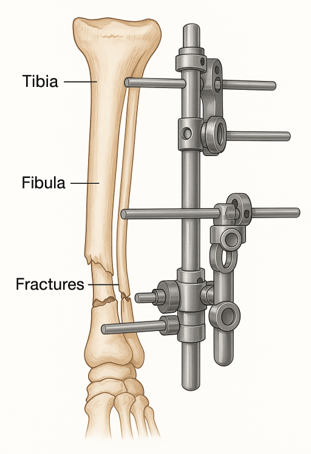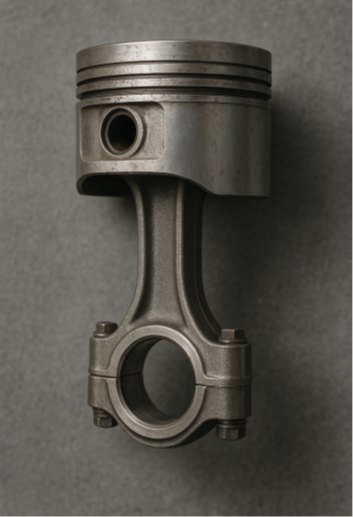Aerospace: Building the Ideal Wing
Context
In aerospace, weight margins are tight and design decisions have long consequences. This analysis predicted wing weight early in design and identified the most influential parameters across 10 inputs.
Findings
- Only 2 of 10 inputs had an individual impact above 5%
- 1 parameter accounted for 70% of the variance in wing weight
- Analysis quality: 99.93%
Download
Download full report →

Medical: Patient-specific solution
Context
Fixators are patient-specific, requiring frequent design changes. This analysis identified the factors which drive stability, helping streamline decision-making across different patients.
Findings
- Only 2 of 6 parameters were significant
- 1 parameter consistently accounted for +80% of the variance in different outputs
- Deformations, stresses and mass became predictable with high confidence
Download
Download full report →Medical: Optimal flow in grafts
Context
In medical design, grafts connect high-pressure arteries to low-pressure veins. Our analysis aimed to find the graft with the most optimal flow, identifying the features that minimize pressure loss and flow disturbance.
Findings
- Of 5 parameters, 1 could explain 80% of the pressure drop
- Analysis was 2000x faster than a CFD-method
- New geometries can now be created and evaluated in seconds
Download
Download full report →

Engineering: Piston cycle times
Context
In engineering, even small gains in cycle time can mean big improvements. This analysis uncovered which inputs had real impact on piston cycle timing, helping focus design decisions early.
Findings
- Only 2 of 7 inputs were influential
- Cycle time became highly predictable for different scenarios
- Analysis quality: 99.73%
Download
Download full report →Automotive: Control units
Context
Efficiency and reliability are critical, in automotive systems. Our analysis predicted ICCU performance using far fewer samples than traditional methods (less than 1%), thanks to adaptive sampling.
Findings
- 44 Million data points, reduced to 2000; with equal quality
- Only 3 parameters of 5 deemed significant
- Analysis quality: 99.25%
Download
Download full report →